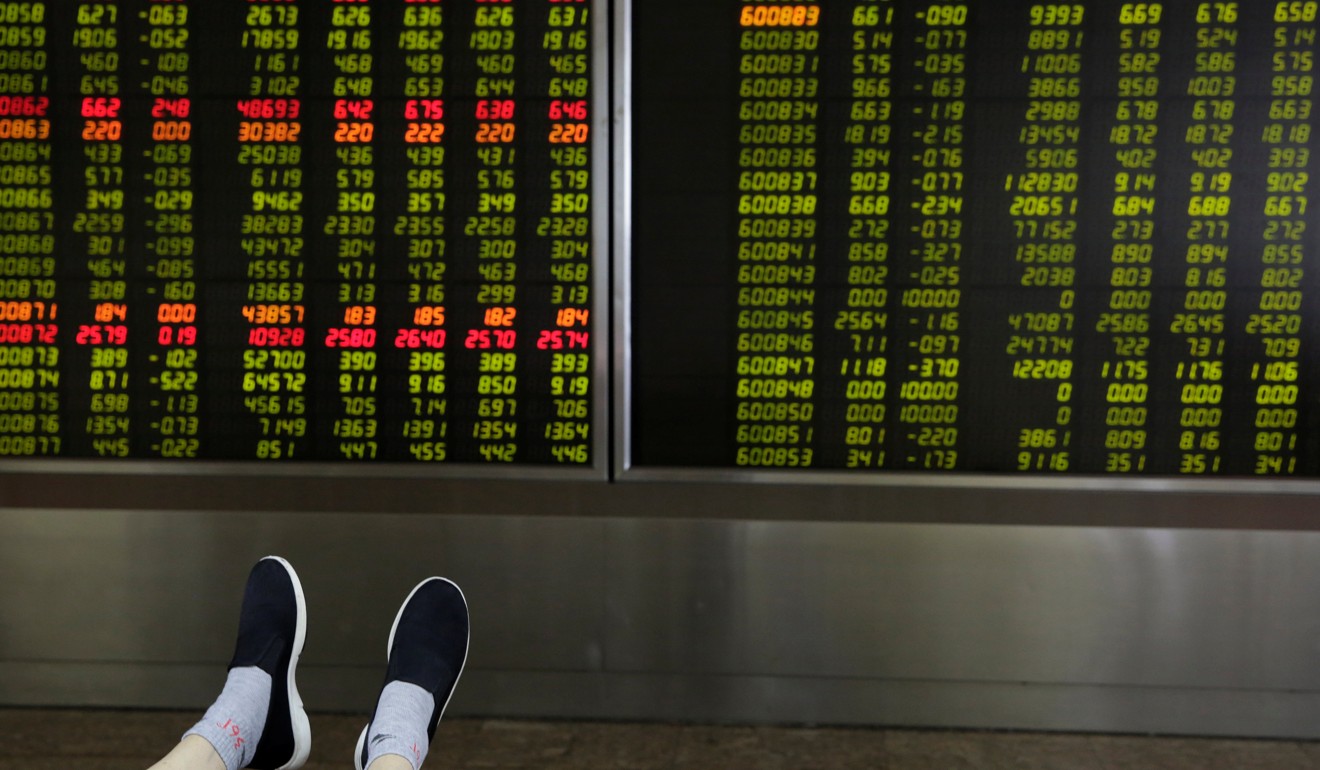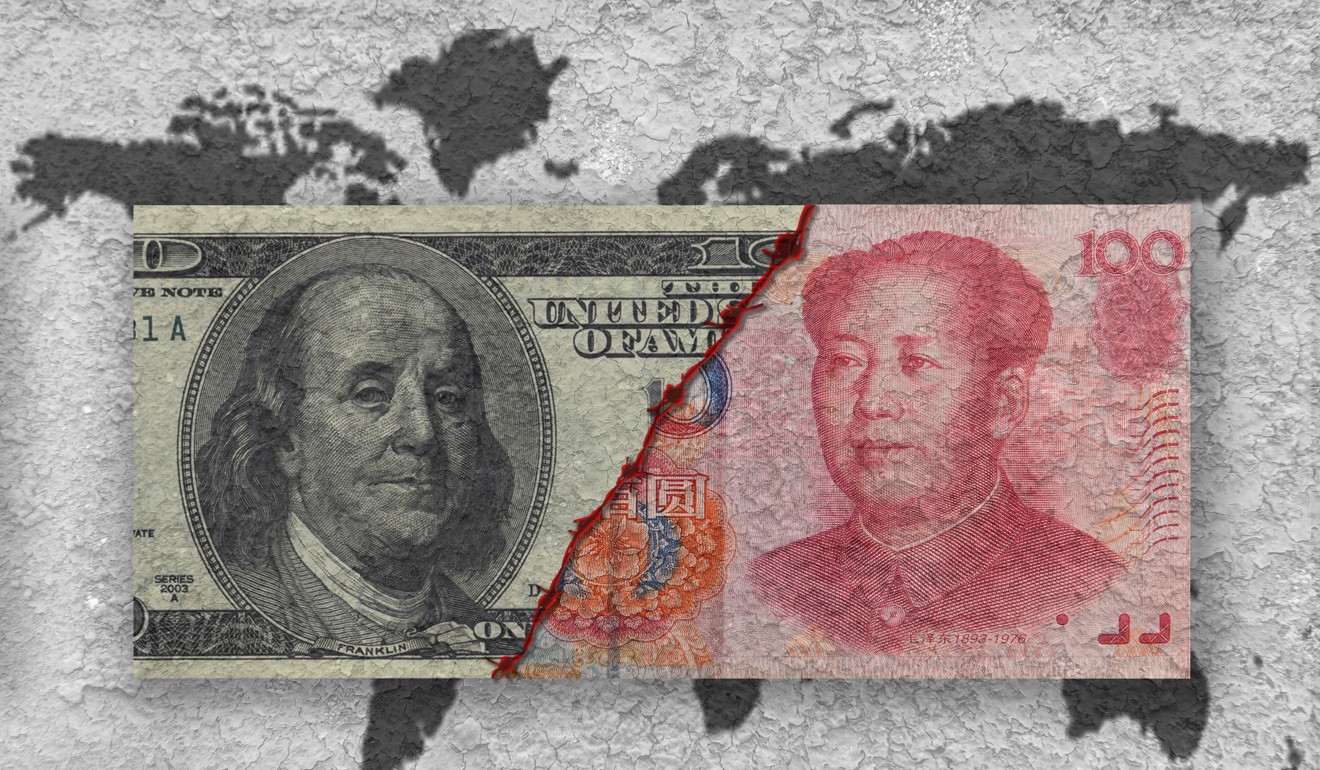
Does the yuan hold the key to an uninterrupted rally in China’s stock market this year?
- Analysts say yuan’s recent appreciation against the US dollar is overdone
- A stronger yuan will boost selective equities and hit others

As Chinese equity benchmarks entered a bull market this week, the yuan too strengthened to a seven-month high against the dollar. Now investors are sizing up the impact of the yuan’s appreciation on the fate of A shares this year.
The trend of a weakening dollar is traditionally viewed as favourable to Asian emerging market equities. In fact, various banks and asset managers had already made calls last year on the dollar peaking in 2019.
The yuan exchange rate has assumed greater significance this year, especially in light of a proposed quadrupling of the weighting of Chinese stocks in the MSCI Emerging Markets Index to 20 per cent, which is expected to spur over US$80 billion of foreign inflow into mainland equities.
On Monday, the yuan rose as high as 6.6718 yuan against the dollar, the strongest level since July. Coinciding with such gains was a 6 per cent surge in the CSI 300, which tracks blue chips listed on the Shanghai and Shenzhen bourses, taking the index’s year-to-date gains to over 25 per cent.
The gains in equities and the yuan came after US President Donald Trump confirmed an extension to the March 1 deadline to resolve the seven-month old trade war with China.

David Cui, head of China equity strategy at Bank of America Merrill Lynch, said a stronger yuan is generally positive for Chinese equities.
“A strong renminbi is typically a sign of a strong economy. In addition, global investors are also more willing to buy Chinese equities if they are not concerned about the risk of a currency devaluation,” Cui said.
He added that if the US Dollar Index, which measures the value of the US dollar against a basket of foreign currencies, continues to decline by 5-10 per cent this year, then such persistent dollar weakness could lead to a more sustained rally in Chinese equities throughout 2019. st
As such, in November 2018, Hans Redeker, Morgan Stanley’s global head of foreign exchange, predicted the dollar index will drop to 85 by the fourth quarter of 2019, and to 81 by the end of 2020 because of reduced demand for US dollar assets from global investors.
Late on Thursday, the dollar index was at 95.84.
Iris Pang, Greater China economist at ING Bank, said the bank sees the yuan weakening to 6.75 against the dollar by the year-end. As of Monday, the yuan had appreciated 2.7 per cent against the dollar year to date, reversing some of its 5.5 per cent loss in 2018.

“We believe that the recent rally of the yuan is overdone due to the news of the US-China trade negotiations,” Pang said.
Likewise, Aidan Yao, senior emerging Asia economist at AXA Investment Managers, said the strength of the yuan and Chinese stocks this year was mostly a result of a short-term “sugar rush” – helped by a change in market expectation for a complete end to the US rate rise cycle this year, and a reversal of Chinese macro policies from tightening in early 2018 to loosening.
“The market currently holds a more bearish view on interest rate hikes this year than the Federal Reserve officials’ own forecasts, which had pointed to two more hikes. This has led to a weakening of the dollar,” he said.
In China, five rounds of cuts to reserve requirement ratios by the People’s Bank of China since 2018, among other measures, helped to release more liquidity into the economy.
These factors combined have reversed the previous negative dynamics weighing on Chinese equities in 2018, when the Shanghai Composite Index lost 25 per cent, and translated to the recent rally, Yao said.
But he cautioned against expectations for an extended renminbi rally, which he sees at 6.9 against the dollar by the year-end.
“The Chinese economy is still decelerating, and the US economy is broadly stable; once the sugar rush wears off, the economic fundamentals of these economies will take a front seat during the second half in driving these currencies’ performance,” said Yao.
As for Chinese equities, a stronger yuan would be positive for consumption-related sectors that would benefit from lower raw material import costs, but companies that rely on export revenue would take a hit, he said.